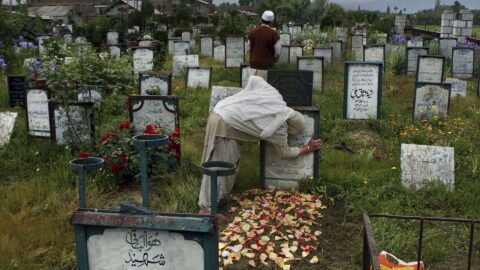Arjun Sethi’s Testimony At the Tom Lantos Human Rights Hearing
2019 marks the hundredth anniversary of one of the great atrocities of colonial rule in South Asia. On April 13, 1919, British officers opened fire on civilians in Jallianwala Bagh in Amritsar, Punjab, murdering more than a thousand people. Soon after, the British enforced an ordinance that compelled Indians to crawl the streets so that they knew their place in the colonial hierarchy.
In 1947, India created a constitutional republic based on the principles of secularism and pluralism. The founders hoped this framework would hold the nation’s rich diversity together and ensure that India would never inflict on others the brutality inflicted on them.
Yet today, Hindu nationalist mobs roam India, targeting Muslims, Dalits and Christians, sometimes forcing them to recite Hindu slogans. Security forces have forced Kashmiris to lick dirt off the road for refusing to utter national mottos.
Hindu nationalism isn’t new to India, but it is on the rise. It’s rooted in the belief that India is a Hindu nation, and that Hindus, who make up 80% of the population, should enjoy a privileged status and exercise majoritarian rule. This ideology is amplified by the RSS, a male only, volunteer, paramilitary organization. Its earliest leaders referred to Christians and Muslims as “internal threats” and compared India’s Muslims to “Jews in Germany.”
The BJP is the political wing of the RSS, and Narendra Modi, the Prime Minister of India, its national leader. Modi trained with the RSS at the age of eight, and recently told a crowd of RSS supporters that he was proud to be a member. Amit Shah, Modi’s second in command, has called undocumented Muslim immigrants “termites” and vowed to “throw them in the Bay of Bengal.”
Modi is forging a new India, where non-Hindus are second class subjects with limited rights. India is often called the world’s largest democracy, but democracies only work if people can speak, associate, and protest freely. Democracies only thrive if they safeguard civil liberties and minority rights. Today, India more closely resembles an authoritarian regime than a pluralistic republic.
On August 5, India revoked the autonomy of Jammu and Kashmir without legal foundation or consultation with the people. Security forces have arrested thousands of Kashmiris, including children as young as nine, without cause. Family members fear that security forces may disappear their loved ones and dump their bodies in mass graves. Detainees who have been released have alleged brutal torture.
Read rest here




